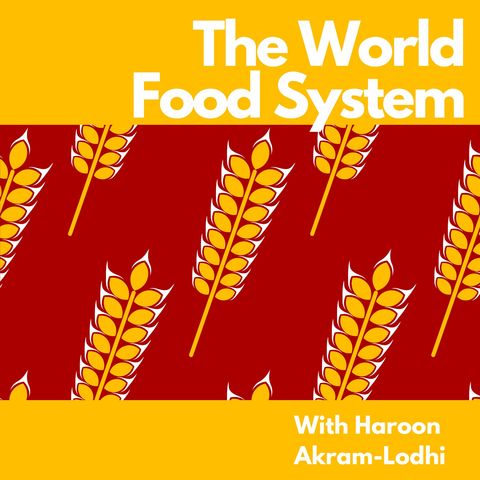
Contactos
Información
Food is central to our identity. It helps us to define who we are, and our place in our home, our community and our world. It shapes the social interactions...
mostra másBut contemporary access to food presents some of the most stark examples of human inequality that we witness on a regular basis. All of us need food to survive, day in and day out. Most of us want more from our food than just survival: we seek pleasure in taste, texture, smell and sight. We seek pleasure in sharing food with others. When we walk into a supermarket, we are confronted with a cornucopia of choice from around the world that enables us to seek this pleasure. Most of us have no idea where the food in the supermarket comes from, and most of us give this no thought, focusing merely upon what we need to acquire to seek the pleasure that we want to get from the food that we buy to eat.
We know, of course, that many of us cannot afford to seek that pleasure from food and its sharing, and have to settle for surviving. We know that far too many in our communities cannot afford to make the choices that we can in a supermarket, having to rely upon the charity of food banks to survive. Indeed, many of us face profound difficulties in doing even that. We know that we live in a world in which unparalleled hunger can be found, in places both far and near, as too many simply don't get enough food.
The world food system is designed to enable you to understand how our food system, with its unparalleled abundance and immense scarcity, came to be, unpacking the key factors shaping contemporary production, distribution, access to and consumption of food, both here and elsewhere. After all, if we want the world to become a better place it seems that a good place to start would be on our plates.

Food is central to our identity. It helps us to define who we are, and our place in our home, our community and our world. It shapes the social interactions...
mostra másBut contemporary access to food presents some of the most stark examples of human inequality that we witness on a regular basis. All of us need food to survive, day in and day out. Most of us want more from our food than just survival: we seek pleasure in taste, texture, smell and sight. We seek pleasure in sharing food with others. When we walk into a supermarket, we are confronted with a cornucopia of choice from around the world that enables us to seek this pleasure. Most of us have no idea where the food in the supermarket comes from, and most of us give this no thought, focusing merely upon what we need to acquire to seek the pleasure that we want to get from the food that we buy to eat.
We know, of course, that many of us cannot afford to seek that pleasure from food and its sharing, and have to settle for surviving. We know that far too many in our communities cannot afford to make the choices that we can in a supermarket, having to rely upon the charity of food banks to survive. Indeed, many of us face profound difficulties in doing even that. We know that we live in a world in which unparalleled hunger can be found, in places both far and near, as too many simply don't get enough food.
The world food system is designed to enable you to understand how our food system, with its unparalleled abundance and immense scarcity, came to be, unpacking the key factors shaping contemporary production, distribution, access to and consumption of food, both here and elsewhere. After all, if we want the world to become a better place it seems that a good place to start would be on our plates.
Información
| Autor | voicEd Radio |
| Organización | voicEd Radio |
| Categorías | Cursos , Ciencias sociales , Documental |
| Página web | www.spreaker.com |
| haroonakramlodhi@trentu.ca |
Copyright 2024 - Spreaker Inc. an iHeartMedia Company
